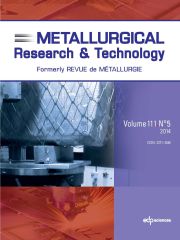Article contents
Towards application of life cycle sustainabilityanalysis
Published online by Cambridge University Press: 29 March 2013
Abstract
There is an increasing need for expanding the scope of traditional life cycle studies toanswer system-wide sustainability questions. This has resulted in a framework for lifecycle sustainability analysis (LCSA). Since the framework was first published in 2009, asone of the outcomes of the CALCAS project, several views and considerations concerning themethodological approach have been published. However, until now practical experience withLCSA is very limited. This paper reports first efforts and experiences in bringing theLCSA framework into practice by assessing the sustainability of solar fuels. Startingpoint of the project is the hypotheses that new technologies can only be practicallyimplemented if they fit into a socially, economically and ecologically sustainablecontext. The analysis therefore aims at identifying performance criteria which a newtechnology needs to fulfil in order to compete in the existing market. It is argued that aLCSA study should be initiated with a broad but relevant system description as the firstof in total five steps Of this five step approach, the first – system description – isdiscussed here. The system description identifies and describes the technologicaldescription, the intended application of a technology, which share of specific demand forservice will be met, which other technologies contribute in meeting this demand, the(relevant indicators for addressing )sustainable impacts of meeting the demand anddevelopments over time. By doing so it provides a solid basis for further steps in theLCSA study.
- Type
- Research Article
- Information
- Metallurgical Research & Technology , Volume 110 , Issue 1: Social Value of Materials , 2013 , pp. 29 - 36
- Copyright
- © EDP Sciences 2013
References
- 5
- Cited by


